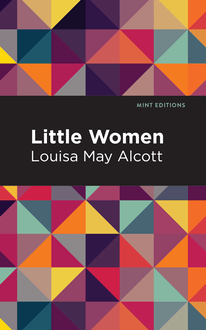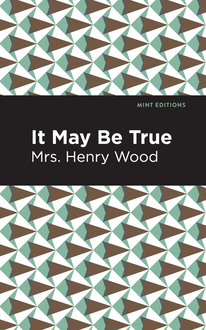-
 Univers
Univers
-
 Ebooks
Ebooks
-
 Livres audio
Livres audio
-
 Presse
Presse
-
 Podcasts
Podcasts
-
 BD
BD
-
 Documents
Documents
-
- Cours
- Révisions
- Ressources pédagogiques
- Sciences de l’éducation
- Manuels scolaires
- Langues
- Travaux de classe
- Annales de BEP
- Etudes supérieures
- Maternelle et primaire
- Fiches de lecture
- Orientation scolaire
- Méthodologie
- Corrigés de devoir
- Annales d’examens et concours
- Annales du bac
- Annales du brevet
- Rapports de stage
La lecture à portée de main
Vous pourrez modifier la taille du texte de cet ouvrage
Découvre YouScribe en t'inscrivant gratuitement
Je m'inscrisDécouvre YouScribe en t'inscrivant gratuitement
Je m'inscrisEn savoir plus
Vous pourrez modifier la taille du texte de cet ouvrage
En savoir plus

Description
The Godolphin family runs a small-town bank, keeping the business in the family and earning them an enviable reputation. However, after the patriarch of the Godolphin passes away, he bequeaths the bank to his two sons, Thomas and George. Nearly polar opposites, the bank is the only thing that the brothers share. Thomas is pious, honest, and serious, haunted by the untimely death of his fiancé. George is dapper, fun, and irresponsible. Though he has a wife, Mary, George spends most of his time with a woman named Charlotte. While Thomas sees the bank as an inherited responsibility, and is eager to uphold the family legacy, George views their inheritance as an opportunity. Despite Thomas’s best efforts, George’s gambling addiction threatens their business. As his debts begin to overwhelm the careless man, George becomes tempted to commit shameful crimes. Headed for social ruin, George sows seeds of trouble, consequently dragging the rest of his family down with him. Hailed as one of the author’s most beloved works, The Shadow of Ashlydyat by Mrs. Henry Wood is a dramatic masterpiece. With themes of family, morality, and class, The Shadow of Ashlydyat is as thought-provoking as it is compelling. Featuring complex, wonderfully-written characters, this Victorian drama leaves its audience conflicted on who to root for, and allows readers to invest in the personal dramas of the Godolphin family. This edition of The Shadow of Ashlydyat by Mrs. Henry Wood now features a striking new cover design and is printed in a font that is both modern and readable. With these accommodations, this edition of The Shadow of Ashlydyat crafts an accessible and pleasant reading experience for modern audiences while restoring the original sentiment and drama of Mrs. Henry Wood’s work.
Sujets
Informations
| Publié par | Mint Editions |
| Date de parution | 14 mai 2021 |
| Nombre de lectures | 0 |
| EAN13 | 9781513286174 |
| Langue | English |
| Poids de l'ouvrage | 1 Mo |
Informations légales : prix de location à la page 0,0650€. Cette information est donnée uniquement à titre indicatif conformément à la législation en vigueur.
Extrait
The Shadow of Ashlydyat
Mrs. Henry Wood
The Shadow of Ashlydyat was first published in 1863.
This edition published by Mint Editions 2021.
ISBN 9781513281155 | E-ISBN 9781513286174
Published by Mint Editions®
minteditionbooks .com
Publishing Director: Jennifer Newens
Design & Production: Rachel Lopez Metzger
Project Manager: Micaela Clark
Typesetting: Westchester Publishing Services
“Over him rushed, like a wind that is keen and cold and relentless, Thoughts of what might have been, and the weight and woe of his errand, All the dreams that had faded, and all the hopes that had vanished, All his life henceforth a dreary and tenantless mansion, Haunted by vain regrets, and pallid, sorrowful faces.”
—L ONGFELLOW
C ONTENTS P ART THE F IRST I. T HE M EET OF THE H OUNDS II. L ADY G ODOLPHIN ’ S F OLLY III. T HE D ARK P LAIN IN THE M OONLIGHT IV. A LL S OULS ’ R ECTORY V. T HOMAS G ODOLPHIN ’ S L OVE VI. C HARLOTTE P AIN VII. B ROOMHEAD VIII. A S NAKE IN THE G RASS IX. M R . S ANDY ’ S “T RADE ” X. T HE S HADOW XI. A T ELEGRAPHIC D ESPATCH XII. D EAD XIII. U NAVAILING R EGRETS XIV. G ONE ON B EFORE XV. A M IDNIGHT W ALK XVI. T HE L AST J OURNEY XVII. A R OW ON THE W ATER XVIII. S TRAW IN THE S TREETS XIX. O NE S TICK D ISCARDED XX. A R EVELATION TO A LL S OULS ’ R ECTOR XXI. C HARLOTTE ’ S B ARGAIN XXII. D ANGEROUS A MUSEMENT P ART THE S ECOND I. S IXTY P OUNDS TO O LD J EKYL II. W HY DID IT A NGER HIM ? III. C ECIL ’ S R OMANCE IV. C HARLOTTE P AIN ’ S “T URN -O UT ” V. A R EVELATION VI. M R . V ERRALL ’ S C HAMBERS VII. B EYOND R ECALL VIII. T HE T RADITION OF THE D ARK P LAIN IX. T HE D EAD A LIVE A GAIN X. N INE T HOUSAND AND F ORTY -F IVE P OUNDS XI. T HOSE B ONDS A GAIN ! XII. “I SEE IT : B UT I CANNOT E XPLAIN IT ” XIII. A R ED - LETTER D AY FOR M RS . B OND XIV. I SAAC H ASTINGS T URNS TO T HINKING XV. A N IGHTMARE FOR THE R ECTOR OF A LL S OULS ’ XVI. M R . L AYTON “L OOKED U P ” XVII. G ONE ! XVIII. M URMURS ; AND C URIOUS D OUBTS XIX. B OBBING J OAN XX. M RS . B OND ’ S V ISIT XXI. A D READ F EAR XXII. B EARING THE B RUNT XXIII. “A S F INE AS A Q UEEN !” XXIV. A V ISIT TO L ORD A VERIL XXV. I N THE S TREETS OF P RIOR ’ S A SH XXVI. M Y L ADY W ASHES HER H ANDS XXVII. A B ROKEN I DOL P ART THE T HIRD I. A M ORNING C ALL II. N EARER AND N EARER III. F OR THE L AST T IME IV. G ATHERED TO HIS F ATHERS V. C OMMOTION AT A SHLYDYAT VI. A C ROWD OF M EMORIES VII. A T R EST VIII. A S AD P ARTING IX. A S AFE V OYAGE TO HIM !
PART THE FIRST
I
T HE M EET OF THE H OUNDS
It was a bright day in autumn: the scene one of those fair ones rarely witnessed except in England. The sun, warm and glowing, almost as that of a summer’s day, shone on the stubble of the cornfields, whence the golden grain had recently been gathered; gilded the tops of the trees—so soon to pass into the “sere and yellow leaf;” illumined the blue hills in the distance, and brought out the nearer features of the landscape in all their light and shade. A fine landscape, comprising hill and dale, water and green pastures, woods and open plains. Amidst them rose the signs of busy life; mansions, cottages, hamlets, railways, and churches, whose steeples ascended high, pointing the way to a better Land.
The town of Prior’s Ash, lying in a valley, was alive that gay morning with excitement. It was the day appointed for the first meet of the hounds; the P. A. hounds, of some importance in the county; and people from far and near were flocking to see them throw off. Old and young, gentle and simple, lords of the soil and tradesmen, all were wending their way to the meet. The master, Colonel Max, was wont on this, the first morning of the season, to assemble at his house for breakfast as many as his large dining-room could by any species of crowding contain; and it was a fine sight, drawing forth its numerous spectators to watch them come out in procession, to the meet. As many carriages-and-four, with their fair occupants, would come to that first meet, as you could have seen in the old days on a country race-course. This show was an old-fashioned local custom; Colonel Max was pleased to keep it up, and he lacked not supporters. The opening this year was unusually early.
The gay crowd was arriving, some from the breakfast, some from their homes. The rendezvous was a wide, open common, with no space wanting. The restrained hounds snarled away at a short distance, and their attendants, attired for the hunt, clacked their whips among them.
Riding a noble horse, and advancing from the opposite direction to that of Colonel Max and his guests, came a tall, stately man, getting in years now. His features were regular as though they had been chiselled from marble: his fine blue eyes could sparkle yet; and his snow-white hair, wavy as of yore, was worn rather long behind, giving him somewhat the appearance of a patriarch. But the healthy bloom, once characteristic of his face, had left it now: the paleness of ill-health sat there, and he bent his body, as if too weak to bear up on his horse. His approach was discerned; and many started forward, as with one impulse, to greet him. None stood higher in the estimation of his fellow-men than did Sir George Godolphin; no other name was more respected in the county.
“This is good indeed, Sir George! To see you out again!”
“I thought I might venture,” said Sir George, essaying to meet a dozen hands at once. “It has been a long confinement; a tedious illness. Six months, and never out of the house; and, for the last fortnight, out only in a garden-chair. My lady wanted to box me up in the carriage this morning; if I must come, she said. But I would not have it: had I been unable to sit my horse, I would have remained at home.”
“You feel weak still?” remarked one, after most of the greeters had had their say, and were moving away.
“Ay. Strength, for me, has finally departed, I fear.”
“You must not think that, Sir George. Now that you have so far recovered as to go out, you will improve daily.”
“And get well all one way, Godolphin,” joined in the hearty voice of Colonel Max. “Never lose heart, man.”
Sir George turned his eyes upon Colonel Max with a cheerful glance. “Who told you I was losing heart?”
“Yourself. When a man begins to talk of his strength having finally departed, what’s that, but a proof of his losing heart? Low spirits never cured any one yet: but they have killed thousands.”
“I shall be sixty-six years old to-morrow, colonel: and if, at that age, I can ‘lose heart’ at the prospect of the great change, my life has served me to little purpose. The young may faint at the near approach of death; the old should not.”
“Sixty-six, old!” exclaimed Colonel Max. “I have never kept count of my own age, but I know I am that if I am a day; and I am young yet. I may live these thirty years to come: and shall try for it, too.”
“I hope you will, colonel,” was the warm answer of Sir George Godolphin. “Prior’s Ash could ill spare you.”
“I don’t know about that,” laughed the colonel. “But I do know that I could ill spare life. I wish you could take the run with us this morning!”
“I wish I could. But that you might accuse me of—what was it?—losing heart, I would say that my last run with the hounds has been taken. It has cost me an effort to come so far as this, walking my horse at a snail’s pace. Do you see Lady Godolphin? She ought to be here.”
Colonel Max, who was a short man, raised himself in his stirrups, and gazed from point to point of the gradually increasing crowd. “In her carriage, I suppose?”
“In her carriage, of course,” answered Sir George. “She is no amazon.” But he did not avow his reason for inquiring after his wife’s carriage—that he felt a giddiness stealing over him, and thought he might be glad of its support. Neither did he explain that he was unable to look round for it himself just then, under fear of falling from his horse.
“I don’t think she has come yet,” said Colonel Max. “I do not see the livery. As to the ladies, they all look so like one another now, with their furbelows and feathers, that I’ll be shot if I should know my own wife—if I had one—at a dozen paces’ distance. Here is some one else, however.”
Riding up quietly, and reining in at the side of Sir George, was a gentleman of middle height, with dark hair, dark grey eyes, and a quiet, pale countenance. In age he may have wanted some three or four years of forty, and a casual observer might have pronounced him “insignificant,” and never have cast on him a second glance. But there was a certain attraction in his face which won its way to hearts; and his voice sounded wonderfully sweet and kind as he grasped the hand of Sir George.
“My dear father! I am so glad to see you here!”
“And surprised too, I conclude, Thomas,” returned Sir George, smiling on his son. “Come closer to me, will you, and let me rest my arm upon your shoulder for a minute. I feel somewhat giddy.”
“Should you have ventured out on horseback?” inquired Thomas Godolphin, as he hastened to place himself in proximity with his father.
“The air will do me good; and the exertion also. It is nothing to feel a little weak after a confinement such as mine has been. You don’t follow the hounds to-day, I see, Thomas,” continued Sir George, noting his son’s plain costume.
A smile crossed Thomas Godolphin’s lips. “No, sir. I rarely do follow them. I leave amusement to George.”
“Is he here, that graceless George?” demanded the knight, searching into the crowd with fond and admiring eyes. But the admiring eyes did not see the object they thought to rest on.
“He is sure to be here, sir. I have not seen him.”
“And your sisters? Are they here?”
“No. They did not care to come.”
“Speak for Janet and Cecil, if you please, Thomas,” interrupted a young lady’s voice at this juncture. The knight looked down; his son looked down also: there stood the second daughter of the family, Bessy Godolphin. She was a dark, quick, active little
-
 Univers
Univers
-
 Ebooks
Ebooks
-
 Livres audio
Livres audio
-
 Presse
Presse
-
 Podcasts
Podcasts
-
 BD
BD
-
 Documents
Documents
-
Jeunesse
-
Littérature
-
Ressources professionnelles
-
Santé et bien-être
-
Savoirs
-
Education
-
Loisirs et hobbies
-
Art, musique et cinéma
-
Actualité et débat de société
-
Jeunesse
-
Littérature
-
Ressources professionnelles
-
Santé et bien-être
-
Savoirs
-
Education
-
Loisirs et hobbies
-
Art, musique et cinéma
-
Actualité et débat de société
-
Actualités
-
Lifestyle
-
Presse jeunesse
-
Presse professionnelle
-
Pratique
-
Presse sportive
-
Presse internationale
-
Culture & Médias
-
Action et Aventures
-
Science-fiction et Fantasy
-
Société
-
Jeunesse
-
Littérature
-
Ressources professionnelles
-
Santé et bien-être
-
Savoirs
-
Education
-
Loisirs et hobbies
-
Art, musique et cinéma
-
Actualité et débat de société
- Cours
- Révisions
- Ressources pédagogiques
- Sciences de l’éducation
- Manuels scolaires
- Langues
- Travaux de classe
- Annales de BEP
- Etudes supérieures
- Maternelle et primaire
- Fiches de lecture
- Orientation scolaire
- Méthodologie
- Corrigés de devoir
- Annales d’examens et concours
- Annales du bac
- Annales du brevet
- Rapports de stage














